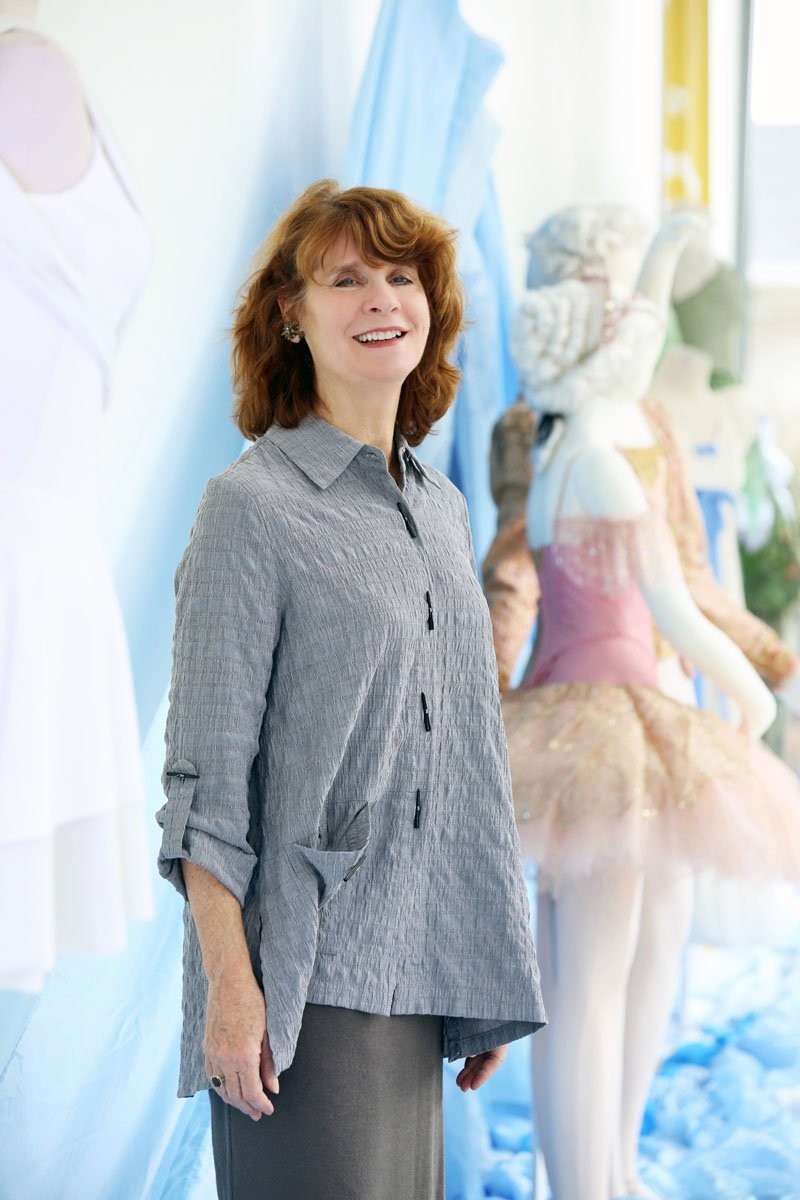Dorothy Gunther Pugh, who has led Ballet Memphis from its inception in 1986, will retire this year.
“I’ve been planning it for a while,” says Pugh, who as executive director is CEO and founding artistic director of the company. She says that artistic director Steven McMahon is “culture keeper” who she’s worked with for a decade. “He will make sure that as an arts institution our values — which have been different and in place long before they were popular for companies to embrace — [are] secure.”
 Karen Pulfer Focht
Karen Pulfer Focht
Dorothy Gunther Pugh
Her retirement takes effect June 30th. Carol Miraglia, the director of finance and administration, will become interim director while the company’s board of directors undergoes a national search for the permanent executive director. “Carol guards the assets and understands our endowment and how to take care of it,” Pugh says. “So we don’t have to be in a hurry and we have plenty of devoted, committed, knowledgeable staff who know how to run things. I’ve tried to be the kind of person who always knew my deficits and tried to make up for them, so we have a strong executive team.”
Pugh has put a lot of thought into the planning of her retirement. “I told our dancers that as a parent you’re always trying your best to make your children strong enough,” she says. And with the organization well positioned to continue, Pugh was also considering her family. Her children and grandchildren live on the coasts and her husband has been retired for three years. “I’ve known it was time for me to figure these things out,” Pugh says. “But it’s not easy. I’m a little scared because I have a lot of energy, but it’s not about me, it’s about the institution and you have to guard the institution and make sure others can take over.”
Pugh was named Memphian of the Year in 2017 by Memphis magazine. In that article, Pugh remembered the beginnings of Ballet Memphis when, in 1985, ArtsMemphis approached her with the idea of building a ballet company. “Shortly after that meeting, I got a call from Pitt Hyde, asking to meet. Pitt got down to business right away and asked, ‘If I gave you $200,000, what would you do with it?’
“I looked at him and said, ‘I’d probably give most of it back to you because I want to grow slowly.’ Three days later, Pitt and an anonymous donor gave us startup money, and we began to build a ballet company.”
That company started with two dancers and a budget of $75,000. The company now has 21 dancers and a $4 million budget. It performs a full season in Memphis and has toured nationally and internationally.
The Ford Foundation has recognized Ballet Memphis as “an exemplary institution” and “a national treasure.” The company has performed to glowing reviews in New York, Paris, and at the Kennedy Center in Washington, D.C. The Heart Foundations has cited the company for its community engagement programs, which are an essential part of Ballet Memphis’ programming.
In 2015, Pugh was chair of the Artistic Directors’ Council for Dance/USA, the nation’s largest dance service organization for professional dance companies. In the 2017 Memphis magazine article, she said, “The number-one thing that was my job in this council was to hammer home and bring up that we all have to have our ballet companies look like America.” Pugh actively sought diversity years before Misty Copeland made history in 2015 at New York’s American Ballet Theatre as the first African-American woman to be promoted to principal dancer in the organization’s 75-year history.
That effort has been recognized. In 2015, Ballet Memphis received a $1.2 million pledge from an anonymous donor to expand the company’s efforts on several levels, a direct result of its commitment to build racial and ethnic representation in the nation’s ballet companies.
What’s to come after retirement? “I haven’t had time to plan,” Pugh says. “That’s how big running this has become. We built the building [the new facility in Overton Square in 2017] and moved into it and found a way to afford it. And our dancers are really good, but I feel like we’re a fishbowl for the bigger guys to come steal them away. There’s so much to do and a lot going on, but we have to be excellent and ahead of the game: creative, responsive to the world, and to get people to care. It’s always going to be hard, but I don’t want to get in the way.”
Still, she’ll be on call.
“I’ll always be here until nobody needs me.”